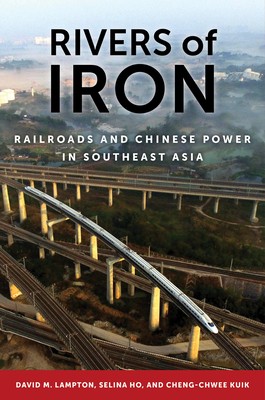
- We will send in 10–14 business days.
- Author: David M Lampton
- Publisher: University of California Press
- ISBN-10: 0520372999
- ISBN-13: 9780520372993
- Format: 16.3 x 23.1 x 3.1 cm, hardcover
- Language: English
- SAVE -10% with code: EXTRA
Reviews
Description
What China's infamous railway initiative can teach us about global dominance. In 2013, Chinese President Xi Jinping unveiled what would come to be known as the Belt and Road Initiative (BRI)--a global development strategy involving infrastructure projects and associated financing throughout the world, including Asia, Africa, the Middle East, Europe, and the Americas. While the Chinese government has framed the plan as one promoting transnational connectivity, critics and security experts see it as part of a larger strategy to achieve global dominance. Rivers of Iron examines one aspect of President Xi Jinping's "New Era" China's effort to create an intercountry railway system connecting China and its seven Southeast Asian neighbors (Cambodia, Laos, Malaysia, Myanmar, Singapore, Thailand, and Vietnam). This book illuminates the political strengths and weaknesses of the plan, as well as the capacity of the impacted countries to resist, shape, and even take advantage of China's wide-reaching actions. Using frameworks from the fields of international relations and comparative politics, the authors of Rivers of Iron seek to explain how domestic politics in these eight Asian nations shaped their varying external responses and behaviors. How does China wield power using infrastructure? Do smaller states have agency? How should we understand the role of infrastructure in broader development? Does industrial policy work? And crucially, how should competing global powers respond?EXTRA 10 % discount with code: EXTRA
The promotion ends in 17d.21:22:00
The discount code is valid when purchasing from 10 €. Discounts do not stack.
- Author: David M Lampton
- Publisher: University of California Press
- ISBN-10: 0520372999
- ISBN-13: 9780520372993
- Format: 16.3 x 23.1 x 3.1 cm, hardcover
- Language: English English


Reviews